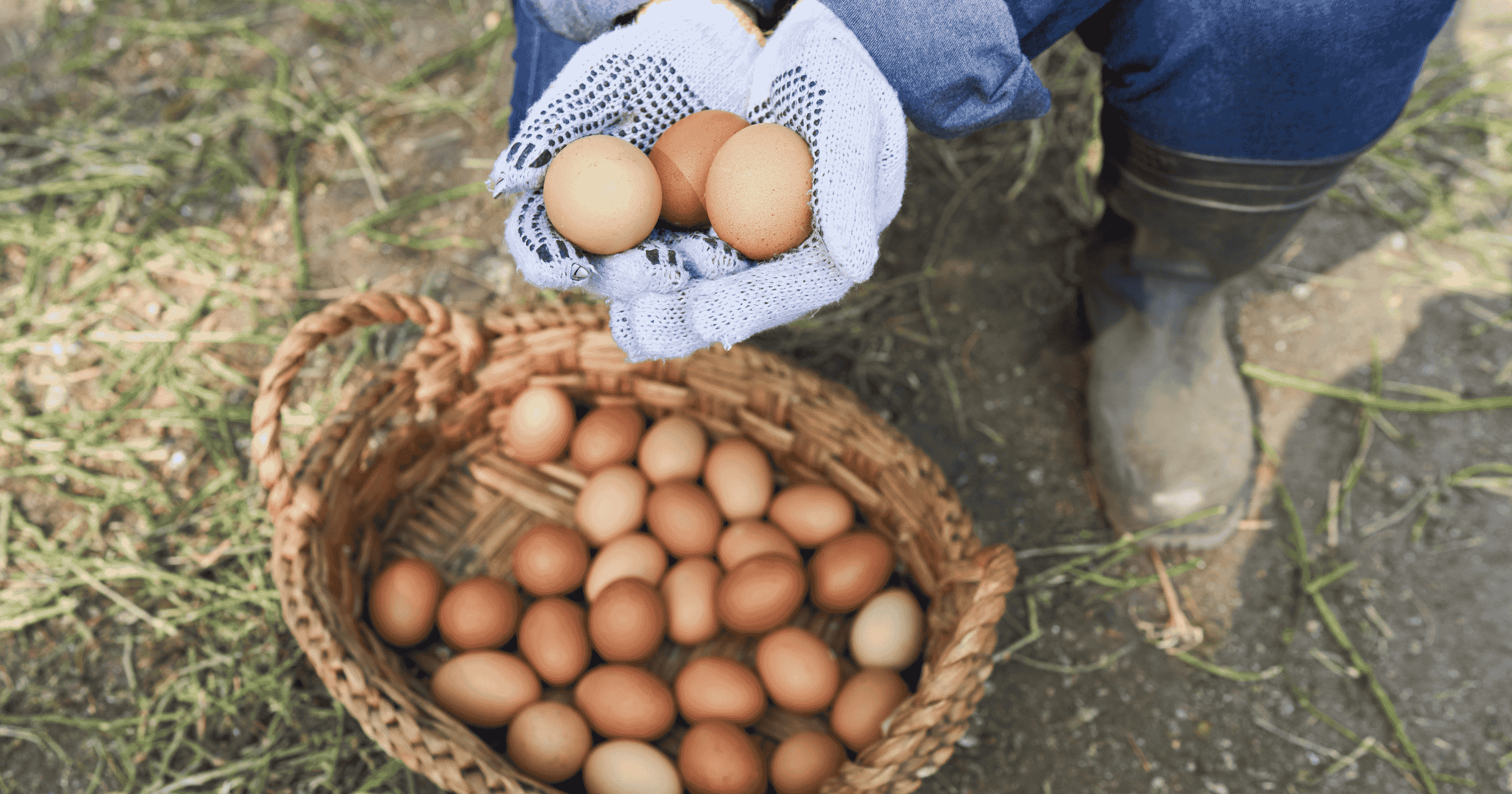
08 Apr Is It Safe to Eat Eggs from Backyard Chickens in Nigeria?
Backyard chicken keeping is on the rise across Nigeria—especially in cities like Lagos, Abuja, Ibadan, and Port Harcourt. It’s a rewarding way to get fresh eggs daily, reduce food waste, and enjoy a bit of farming right at home.
But one question often comes up:
“Is it actually safe to eat eggs from my backyard chickens?”
Whether you’re raising local breeds or exotic layers, food safety should always be a top priority. In this article, we’ll explore the health concerns, safety practices, and tips that make backyard eggs not just safe—but even healthier and tastier than store-bought alternatives.
Let’s crack it open.
Quick Answer: Are Backyard Eggs Safe?
✅ Yes—backyard chicken eggs are safe to eat, as long as the chickens are healthy and the eggs are collected, handled, and stored properly.
In fact, many Nigerians report that eggs from backyard birds taste better and feel more nutritious than the ones in supermarkets.
However, just like any food, poor hygiene and neglect can turn a good egg into a health risk.
Benefits of Backyard Eggs in Nigeria
Here’s why backyard eggs can actually be a better option:
- 🥚 Freshness – You eat eggs laid just hours or days ago.
- 🌿 Healthier diet for hens – Birds often forage for greens, insects, and natural grains.
- 🍳 Taste and flavor – Richer yolks, better texture, and more satisfying meals.
- 🚫 Fewer chemicals – No commercial sanitizers, bleach, or preservatives.
Potential Risks You Should Know
While backyard eggs can be very healthy, there are a few risks to watch out for:
1. Salmonella or Bacteria Contamination
- Chickens naturally carry bacteria like Salmonella in their digestive tract.
- These bacteria can be transferred to the egg shell (especially if eggs are soiled with droppings).
2. Dirty Nesting Boxes
- If eggs sit in unclean coops or wet nests, they can absorb moisture or germs through the shell.
3. Improper Storage
- In Nigeria’s hot climate, eggs can spoil quickly if not stored correctly (especially after being washed).
4. Sick or Unvaccinated Chickens
- A sick bird can pass on disease through the egg or expose you to zoonotic infections.
How to Make Backyard Eggs Safe to Eat in Nigeria
Let’s break it down: collect, clean, check, store, and cook.
🧺 1. Collect Eggs Regularly
- Pick eggs at least twice daily, especially during hot or rainy weather.
- The sooner you collect, the cleaner and safer the eggs.
🧼 2. Clean Them Carefully
- If eggs are clean, don’t wash them—the natural bloom protects them.
- For dirty eggs:
- Use dry cleaning (brush or sandpaper) if storing unrefrigerated.
- Use warm water and mild soap only if you’ll refrigerate or use immediately.
- Never soak or use cold water—it can pull bacteria into the egg.
🔍 3. Check for Cracks or Odd Smells
- Discard any eggs with:
- Cracked shells
- Leaky contents
- Strange smells
- Blood or black spots inside when cracked
❄️ 4. Store Properly
- Keep in a cool, dry place, away from sunlight.
- If washed, store in the fridge if you have one.
- Pointy end down is best for longer freshness.
🔥 5. Cook Eggs Thoroughly
- Boiling, frying, or scrambling kills any residual bacteria.
- Soft or raw eggs (used in mayo, salad dressings, etc.) are not recommended unless you’re 100% sure the egg is clean and fresh.
Common Questions Nigerians Ask About Backyard Eggs
Q: Can I eat eggs if my chickens roam around dirty areas?
A: Yes, but monitor them. Free-ranging is healthy, but make sure they avoid gutters, garbage heaps, or contaminated water. Always clean the coop and inspect eggs.
Q: Do local (native) chickens lay safer eggs than exotic layers?
A: Both can lay healthy, safe eggs. What matters is the health of the chicken, not the breed. That said, native birds often eat more diverse, natural diets.
Q: What if I see a small blood spot in the yolk?
A: This is harmless and normal. It’s a ruptured blood vessel during laying—not a sign of fertilization or disease. You can eat the egg.
Q: Can kids and pregnant women eat backyard eggs?
A: Yes—but make sure the eggs are:
- From healthy birds
- Properly cleaned and cooked
- Not expired or spoiled
Bonus Tips for Safer Backyard Egg Production
✅ Keep nesting boxes dry and clean
✅ Feed chickens a balanced diet (grains, greens, protein)
✅ Give access to clean water daily
✅ Vaccinate birds if possible
✅ Avoid using antibiotics without vet advice
✅ Handle eggs with clean hands
✅ Label eggs with collection date
How to Tell If an Egg Is Still Good
Use this old but gold water test:
- Fill a bowl with water
- Gently place the egg in it
| Egg Position | Is It Safe? |
|---|---|
| Sinks flat | Fresh and safe |
| Sinks, stands upright | Okay but use soon |
| Floats | Bad—throw it out |
Final Thoughts: Are Backyard Eggs Safe in Nigeria?
Yes, backyard eggs are safe and often better than store-bought—if you follow simple hygiene and safety steps.
In fact, many Nigerian families rely on eggs from their own chickens for daily meals. With a clean coop, healthy birds, and smart handling, you can enjoy fresh, tasty, and nutritious eggs every day—right from your backyard.
Ready to Start Your Backyard Egg Journey?
If you haven’t already, consider raising a few layers in your compound. It’s a low-cost, rewarding, and delicious way to improve your family’s nutrition—and maybe even earn some income selling extras to neighbors.
Recent posts
- How to Make Akara and Moi Moi with Farm Eggs | Delicious Nigerian Recipes
- How to Make Perfect Omelettes with Farm Eggs | Easy, Delicious Recipe
- Easy Egg Salad Recipes with Farm Fresh Eggs | Delicious & Nutritious
- Deviled Eggs with Local Nigerian Ingredients | Easy Recipe
- Delicious Nigerian Dishes Made with Eggs | Tasty Egg Recipes
Your cart
Your cart is currently empty!








No Comments